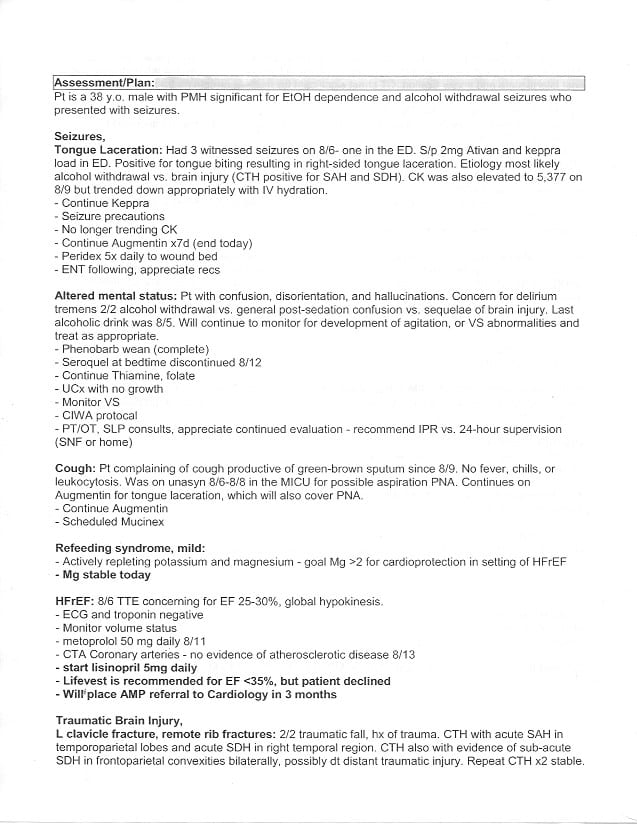During the first two years of medical school I passed all of my exams and performed well on simulated patient experiences (OSCEs), but I was never one of those students who got honors or letters. Aside from an amazing internship after my first year, I was unable to obtain much research experience and had no publications to speak of. Like most medical students, I was used to being academically competitive. Feeling like an average student in my first two years was brand new to me and somewhat unsettling. Luckily, things changed in third year.
When I finally started on the wards it was like a breath of fresh air. I remember thinking, this is why I came to medical school. The hours upon hours of studying and sitting for exams are all part of the process, but the bulk of medical knowledge and skills is developed through direct patient care. At the beginning of third year there was still a major learning curve, but thankfully I worked with amazing interns, residents, and attendings at The Ohio State who saw my potential and pushed me from an average student to an excellent one. Below are excerpts from clinical performance assessments I received throughout my third year.
“Taylor gathered patient data in a thorough yet efficient manner, demonstrating well-developed interviewing and physical exam skills. She created concise, but complete and well-organized written and oral presentations. Her extensive and accurate differential diagnoses and management plans displayed a thorough understanding of the patients’ issues. Taylor was proactive in obtaining information relating to her patients’ tests and procedures and used her strong knowledge base to apply this information logically to patient problems. She was not afraid to take on the more complex or difficult cases, exhibiting great clinical reasoning and decision making skills above the expected level of her training.”
“During internal medicine, Taylor rotated on the general medicine wards, infectious disease consult service, and hepatology wards. She was an enthusiastic and hard-working student. She had great interactions with her patients and established great rapport. She did a great job gathering pertinent details in her histories. Taylor delivered excellent presentations that were well-thought-out, clear, and succinct. She quickly identified illnesses and proposed management plans. She took on complicated patients as well.”
“She was able to perform an excellent neurological examination and interpret abnormalities on the exam in the clinical context of the patient’s presentation. Her history and physical presentations were clear, logical, and always highlighted the most relevant and pertinent details. She was empathetic and had an excellent bedside manner. She developed great working relationships with rest of the team and everyone enjoyed having her on the neurology service.”
As a fourth-year medical student it has been my goal to further expand on my medical knowledge and skills. This year, I’ve diligently used resources such as UpToDate, the OSU clinical practice guidelines, and peer-reviewed journal articles to help develop assessments and plans for my patients. I also take the opportunity to practice my medical decision making by discussing plans with my patients and addressing questions in the room, instead of deferring to the rest of the team as I did during third year. I no longer rely on the resident note to help me organize my problem list and on a few occasions my residents have actually used my note as a template for theirs! Below is an assessment and plan I wrote for a complex patient on the General Medicine service during my internal medicine mini-internship.
I’m not just an average medical student. I feel that I have the potential to be an excellent resident, bringing an eagerness to continue expanding on my medical knowledge base. I also aim to make meaningful contributions to my chosen field of medicine by publishing original research, and hope to begin developing those skills during residency.

